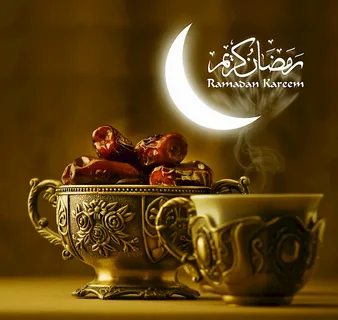Ramadan, the holy month of fasting and spiritual reflection, holds significant importance in the Islamic faith. One of the integral practices during this month is the recitation of Ramadan mubarak duas, or prayers. These prayers hold a special place in the hearts of Muslims worldwide, serving as a means of connecting with the divine and seeking blessings and guidance.
Understanding the Significance of Duas during Ramadan

Ramadan duas are deeply rooted in the Islamic tradition, with references in the Quran and teachings of Prophet Muhammad (peace be upon him). They are considered a form of worship and a means of seeking closeness to Allah. During Ramadan, the importance of duas is emphasized, as it is believed that the gates of heaven are open, and prayers are readily accepted.
Duas, or supplications, hold significant importance during Ramadan, the holiest month in Islam. Here are a few key reasons why they are emphasized during this time:
- Connection with Allah: Ramadan is a month of heightened spirituality and increased devotion. Muslims believe that Allah’s mercy and blessings are more readily available during this time. Duas serve as a means to connect with Allah on a deeper level, seeking guidance, forgiveness, and blessings.
- Opportunity for Reflection: Fasting during Ramadan encourages self-reflection, humility, and gratitude. Through dua, Muslims reflect on their shortcomings, seek forgiveness for past mistakes, and express gratitude for Allah’s blessings. It’s a time for introspection and spiritual growth.
- Seeking Mercy and Forgiveness: Ramadan is a month of forgiveness, and Muslims believe that Allah’s mercy is abundant during this time. Through dua, individuals seek Allah’s forgiveness for their sins and shortcomings, acknowledging their dependence on His mercy and compassion.
- Strengthening Community Bonds: Ramadan fosters a sense of community and solidarity among Muslims. Gathering for prayers, iftar (breaking of the fast), and other Ramadan activities provide opportunities for communal dua. Muslims come together to supplicate for themselves, their families, and the broader community, strengthening their bonds and supporting one another.
- Manifestation of Faith: Engaging in dua during Ramadan is an outward expression of faith and devotion. It demonstrates a believer’s reliance on Allah and their belief in the power of prayer. By actively engaging in dua throughout the month, Muslims reaffirm their commitment to their faith and its principles.
The Practice of Making Duas during Ramadan
The practice of making duas during Ramadan encompasses various rituals and traditions. Muslims often gather in mosques or homes to recite collective prayers, seeking blessings for themselves, their families, and the entire Muslim community. Additionally, individuals offer personalized prayers, pouring their hearts out to Allah, seeking forgiveness, guidance, and blessings.
Ramadan mubarak Duas

Ramadan Mubarak” is a common greeting during the holy month, conveying well wishes for a blessed and prosperous Ramadan. Here are a few dua (supplications) that are commonly recited during Ramadan:
- Dua for Fasting (Suhoor) Intentions: “Wa bisawmi ghadinn nawaiytu min shahri Ramadan” (I intend to keep the fast for tomorrow in the month of Ramadan)
- Dua for Breaking the Fast (Iftar): “Allahumma inni laka sumtu wa bika aamantu wa ‘alayka tawakkaltu wa ‘ala rizq-ika-aftartu” (O Allah! I fasted for You and I believe in You and I put my trust in You and with Your sustenance, I break my fast)
- Dua for Seeking Forgiveness (Tawbah): “Astaghfirullah al-Adheem wa atubu ilayh” (I seek forgiveness from Allah, the Almighty, and I repent to Him)
- Dua for Blessings and Mercy: “Allahumma barik lana fi Ramadan wa inna ‘ala hadha al-shahri min al-‘ibaadah wa al-qiyaam” (O Allah, bless us in Ramadan and enable us to worship and observe prayers during this month)
- Dua for Acceptance of Deeds (Qabool): “Allahumma taqabbal minna innaka antas Samee’ul Aleem” (O Allah, accept from us; surely You are the All-Hearing, the All-Knowing)
Benefits of Reciting Ramadan Duas
The act of reciting Ramadan duas yields numerous spiritual benefits. It fosters a sense of spiritual fulfillment and connection with the divine. Through consistent dua recitation, believers strengthen their faith and develop a deeper understanding of their purpose in life. Moreover, communal dua gatherings promote unity and solidarity among Muslims, strengthening the bonds of brotherhood and sisterhood.
Tips for Effective Dua Recitation
Effective dua recitation involves both the heart and mind, and it’s a deeply personal and spiritual practice. Here are some tips to enhance your dua recitation:
- Intention (Niyyah): Begin with a sincere intention. Clarify in your mind and heart what you’re asking for and why you’re seeking it. Approach dua with humility and sincerity.
- Choose Appropriate Times: While you can make dua at any time, certain times are considered more auspicious, such as during sujood (prostration) in prayer, the last third of the night, the time just before breaking the fast (iftar), and during the last part of Friday (Jumu’ah).
- Focus and Presence: Concentrate on the words and their meanings as you recite dua. Avoid distractions and try to be fully present in the moment. Engage all your senses in the act of dua.
- Praise and Gratitude: Begin your dua by praising Allah (Subhanahu wa ta’ala) and expressing gratitude for His countless blessings. This helps in establishing a connection and acknowledging His greatness.
- Repentance and Seeking Forgiveness: Before making your requests, seek forgiveness for your sins and shortcomings. Repentance opens the doors of mercy and increases the likelihood of your dua being accepted.
- Use of Arabic: While it’s beneficial to learn and recite dua in Arabic, especially those taught by the Prophet Muhammad (peace be upon him), it’s also acceptable to make dua in your native language. Allah understands all languages.
- Persistence: Be persistent in your dua, especially for matters that are important to you. Keep asking Allah for guidance, help, and blessings, and trust in His wisdom and timing.
- Ask for Others: Include others in your dua. Pray for your family, friends, community, and all believers. Selflessness in dua is highly rewarded.
- Confidence and Trust: Have confidence that Allah hears your dua and will respond in the best way. Trust in His wisdom and timing, even if the response is different from what you expected.
- End with Salawat: Conclude your dua with sending blessings upon the Prophet Muhammad (peace be upon him). This is a recommended practice and adds a beautiful conclusion to your supplication.
Ramadan Duas in Daily Life
The significance of Ramadan duas extends beyond the holy month, influencing Muslims’ daily lives. Incorporating dua recitation into one’s routine serves as a constant reminder of the importance of seeking guidance and blessings from Allah. Whether facing challenges or celebrating joys, turning to dua provides solace and strength, reaffirming one’s faith and reliance on the divine.
Resources for Ramadan Duas
Numerous resources are available to aid Muslims in their dua recitation during Ramadan. Books containing compilations of authentic duas, along with online platforms offering guidance and audiovisual aids, provide valuable support for believers. These resources cater to individuals at various levels of spiritual understanding, enabling them to engage in dua recitation with ease and confidence.
FAQs
Can I recite Ramadan duas in any language?
Yes, Muslims can recite duas in any language they understand best. The essence lies in the sincerity and intention behind the prayer.
Are there specific times for reciting Ramadan duas?
While there are recommended times, such as during Suhoor, Iftar, and the last third of the night, Muslims can make dua at any time, as Allah is always accessible to His servants.
Can non-Muslims recite Ramadan duas?
Yes, non-Muslims can recite Ramadan duas if they wish to seek blessings or understand Islamic practices. However, the spiritual significance may vary based on individual beliefs.
What should I do if I don't know any Ramadan duas?
There are many resources available, including books, online platforms, and mobile applications, that provide authentic Ramadan duas along with transliterations and translations for easy understanding.
Can I make dua for someone else during Ramadan?
Absolutely, making dua for others, whether they are family members, friends, or even strangers, is highly encouraged in Islam. It reflects compassion and empathy, fostering goodwill and unity within the community.
Conclusion
Ramadan duas hold immense significance in the lives of Muslims, serving as a means of spiritual upliftment and connection with the divine. Through consistent recitation and sincere intention, believers seek blessings, guidance, and forgiveness, enriching their spiritual journey during the holy month and beyond.

